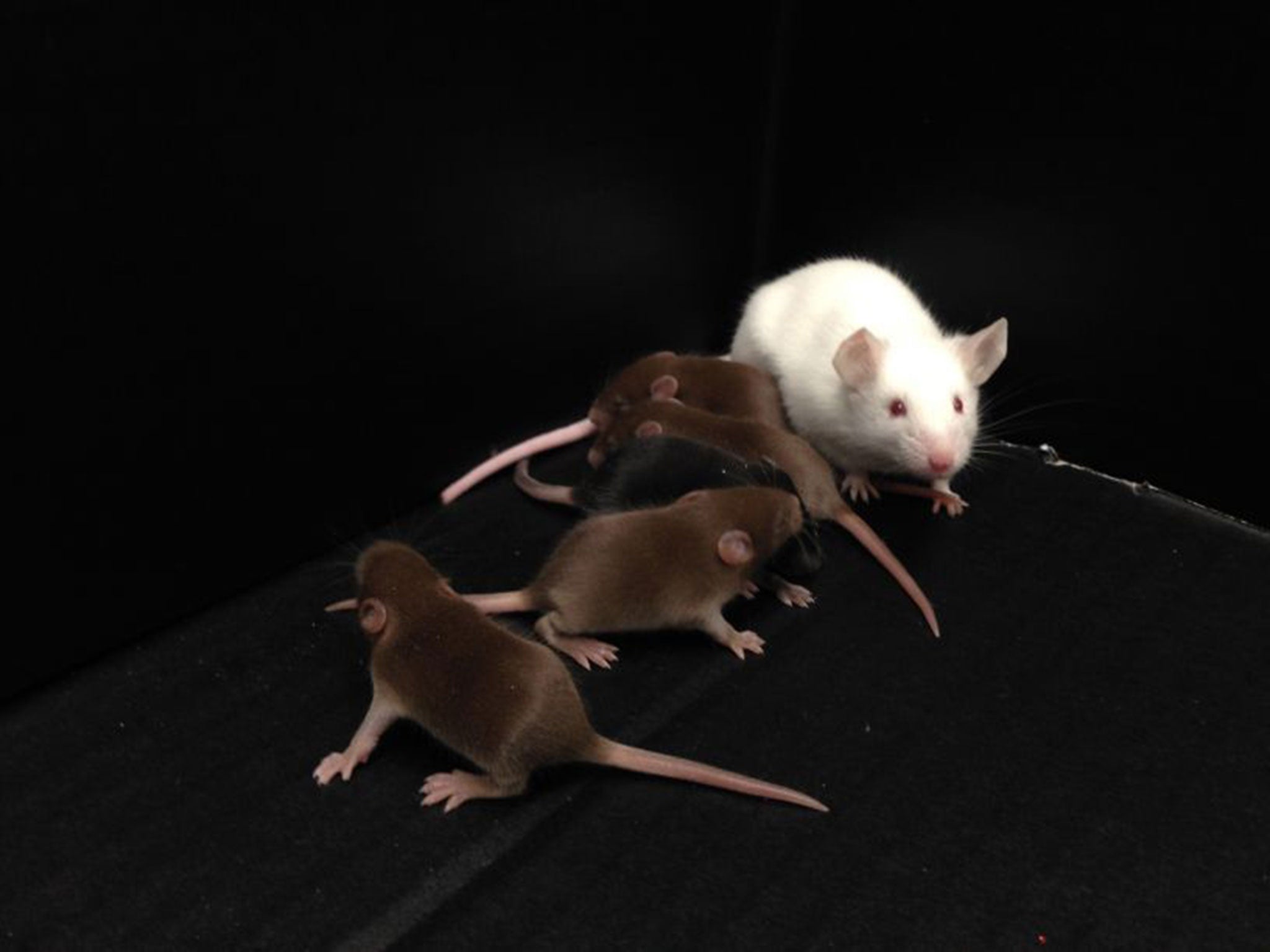Scientists create male mice able to reproduce without Y chromosome
Without the Y chromosome, mammal foetuses develop into the 'default' sex, which is usually female

The essence of man was thought to reside in his Y chromosome, which is passed directly down the male line only, but now scientists have created male laboratory mice without a Y chromosome that are still able to sire offspring.
Sex in mammals including humans comes down to which combination of chromosomes you inherit. Women have two X chromosomes, one from each parent, while men have an X chromosome from their mother and a Y chromosome from their father.
It is the genes on the Y chromosome that trigger the development of a male foetus in the womb. Without them, the foetus will develop into the “default” sex, which in humans and most other mammals is female.
However, a team led by Professor Monika Ward of the University of Hawaii have now shown that it is still possible for a mouse without any Y chromosome to develop into a fertile male provided it has two other genes functioning – one called the testes-determinant factor, Sry, and another called the spermatogonial proliferation factor (Eif2s3y).
In a study published in the journal Science, they showed that these “no Y” males were still able to produce viable sperm which, when used to produce IVF embryos, gave rise to fertile, healthy offspring. Although the sons and grandsons also lacked a Y chromosome, they were capable of producing further generations without any IVF fertility treatment, the scientists said.
“Most of the mouse Y chromosome genes are necessary for development of mature sperm and normal fertilization, both in mice and in humans. However, when it comes to assisted reproduction, we have now shown that in the mouse the Y chromosome contribution is not necessary,” Professor Ward said.
The scientists were able to exploit “homologous” or similar genes for Sry and Wif2s3y on other chromosomes to take over the functions lost by the loss of the Y chromosome. They believe this is an important discovery as it may ultimately help infertile men who want children.
“This is good news because it suggests that there are back-up strategies within genomes, which are normally silent but are capable of taking over under certain circumstances,” Professor Ward said.
“We revealed two of these strategies by genome manipulation. Whether such alternative pathways would ever be activated without human help, for example in response to environmental changes, is unknown. But it is certainly possible and has already happened for two rodent species which lost their Y chromosomes,” she said.
Join our commenting forum
Join thought-provoking conversations, follow other Independent readers and see their replies
Comments
Bookmark popover
Removed from bookmarks